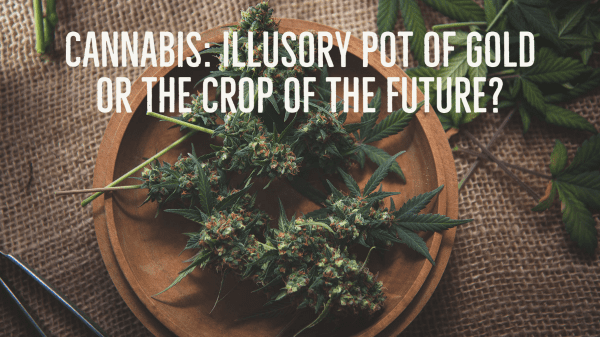In Florida, hemp has attracted a great deal of attention among growers.
The state of Florida began to issue licenses for growing hemp in April 2020, and by February 2021 there were 35,000 acres registered, with $270 million in income projected for the coming year, reported WCJB News in Gainesville.
There’s more growth to come.
“Within the next few years, hemp farming in Florida is projected to grow to about half the size of the state’s citrus industry,” writes Regan McCarthy on the website of Miami’s WFSU Public Media, part of Florida State University. “Much of that growth is driven by CBD production.”
McCarthy quotes Florida agricultural commissioner Nikki Fried, who, speaking in January, said, “At this moment Florida has 22,078 licensed acres of hemp cultivation after just seven months.
This acreage is nearly identical to three of our key crops—tomatoes, watermelon, and snap peas—and is double of what we have in production for strawberries here in the state of Florida.” (Note that acreage rose from 22,078 to 35,000 in about a month.)
In many cases, hemp has replaced permanent crops in Florida, including citrus and blueberries.
“We’re talking about citrus groves that weren’t producing,” says Florida cannabis director Holly Bell, “so those are being dug up and the land is being repurposed to bring in revenue and create new jobs.”
Some blueberry growers who were struggling as a result of increased competition from Mexico have also turned to hemp.
Hemp has an enormous number of uses, such as for textiles and even for paper, but markets are limited by a lack of facilities for producing these products.
“Textiles and fiber can be made from the pith,” says Frederick Schilling, a partner in Klersun, LLC, a company that specializes in hemp-derived extracts.
“That will eventually increase once the infrastructure is built out to support those products.”
He foresees this occurring in three to five years.
Infrastructure will, in part, determine the future of the cannabis industry. So will legislation. The third factor is business acumen and integrity.
“As with any emergent industry, there were bad actors doing things that were giving the industry a bad name,” says Chris Bourne, Schilling’s partner. “Fortunately, a lot of those folks have been weeded out.”
Some analysts also believe the industry has lost much of its “wildcat” mentality and is now more comparable to mature packaged-goods companies.
This is an excerpt from the cover story of the May/June 2021 issue of Produce Blueprints Magazine. Click here to read the whole issue.



